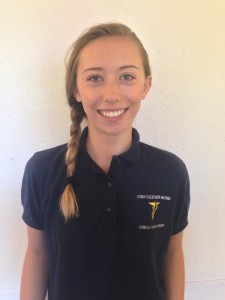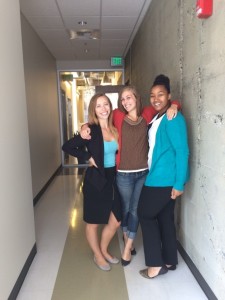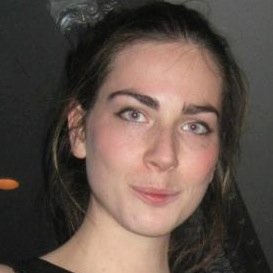I had no idea what to expect when this summer began. To give you perspective on my naiveté, I wasn’t even sure what my living situation was fully going to be as I exited my plane at JFK. But to my surprise, that exact moment was when my summer took off.
I arrived on my first day at the Hearst Tower with The Devil Wears Prada playing in my mind. After all, I was going into the magazine industry just as fresh and eager as Anne Hathaway. However, I didn’t wear the lumpy grey sweater on my first day – I would have probably melted from the heat. Having taken over an hour to strategize my first day outfit the night before, I met my direct supervisors, and fellow Sales Assistants, at the top of the escalators promptly at 9:30am. They gave me a tour of the café, our floor, and introduced me to the rest of the ELLE DECOR advertising sales team. I could already tell that my summer was going to be far different than Ms. Hathaway’s – instead of feeling overwhelmed, I felt at home. After I was genuinely welcomed and familiarized with the interns for House Beautiful Magazine and Veranda Magazine, I was given my first assignment. And just like that, my internship began.
My internship consisted of a diverse group of tasks. As is representative of advertising sales, some days were very slow and some days were exceptionally busy. One of the most common tasks I was assigned was the completing of edit credit books for the account directors. I tracked every advertisement and mention of an advertiser, both manually by reading each page and with the help of MediaRadar. Although creating these edit credit books took a significant amount of time, they played a vital role in acquiring new business. I was able to see the results of my edit credit assembling efforts by attending a sales call with our Lancôme client. The account director I went with used the materials I had created – she showed the various pages on which Lancôme products were featured, perfectly connected the beauty line to our interior design magazine, and finalized the contract all in an hour. It was thrilling and rewarding to see how much of an impact my time and dedication made.
In addition to edit credit books, I was also assigned a final project where the interns came together to pitch advertorial ideas for a new business. We decided on U.S. Trust, a branch of Bank of America focusing on the specific needs of affluent individuals. Over the course of two months, we researched every facet of U.S. Trust: From specialty asset management, to small business account management, and refinance insurance. After compiling our research, we then used our developing knowledge of each of our magazine brands to create unique pitches. Finding a common thread between two seemingly unrelated areas, interior designs and banking, was the most fascinating part of the final project. In the end, we produced an entire deck that showcased our research, the connections, and presented it to all sales assistants, marketing assistants, and associate directors.
In the end, I didn’t turn into Anne Hathaway, but I did grow into the version of myself that I am proud to be today. Many thanks to the generous Scripps College community, particularly Ms. Judith Nelson Keep, for helping me find my way – even if it’s not entirely mapped out.



 Jessica Warren ’14 graduated from Scripps with a major in Anthropology. She credits her time at Scripps as one of the defining places that influenced her interests and developed her critical thinking skills that lead her to her current position as a Research Associate at the
Jessica Warren ’14 graduated from Scripps with a major in Anthropology. She credits her time at Scripps as one of the defining places that influenced her interests and developed her critical thinking skills that lead her to her current position as a Research Associate at the 
